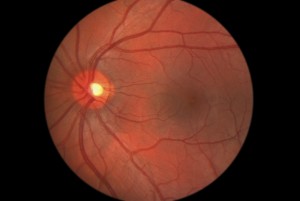Diabetes is one of the most widely misunderstood conditions around, which is surprising considering how widespread it is. Here are nine of the most common myths and misconceptions, and the truth behind each one.

1. Type 1 diabetes isn’t caused by eating sugar…
There are two main types of diabetes, helpfully called type 1 and type 2. Type 1 is an autoimmune disease. It develops when the immune system attacks insulin-producing beta cells in the pancreas. Without insulin, we can’t regulate our blood sugar levels, and this can be very dangerous.
We don’t know exactly why the immune system kicks off like this, but we do know it’s not a “lifestyle choice” – which is one of the most common misconceptions around. As far as we know, there’s nothing you can do to prevent type 1 diabetes.

2. …But type 2 diabetes isn’t necessarily caused by diet either.
Then there’s type 2 diabetes. This is the one people often associate with obesity. But they’re wrong to do so. This too is a myth. Type 2 diabetes can have a wide range of causes, including genetics and the natural rise of blood sugar that occurs as we get older. At least one in five people diagnosed with type 2 are a healthy weight.

3. There could be as many as four types of diabetes.
There are many types of diabetes. Along with the big two, there’s MODY, LADA, gestational diabetes, and many more. Type 3 diabetes is a proposed term for Alzheimer’s disease, because there are a lot of links between Alzheimer’s and blood glucose levels in the brain.
A recent study suggested that there should be a fourth type of diabetes. Type 4 diabetes would describe cases of type 2 diabetes caused by aging rather than diet or genetics. The researchers came up with this after finding that the metabolic process was much different in cases of type 2 diabetes caused by aging.

4. Diabetes can be very, very serious.
Diabetes is not a mild disease. It is not about having the odd insulin injection or declining a sugary dessert. Without careful management, diabetes can lead to complications. These complications can affect nearly every part of the body. Heart disease is common, as is retinopathy (visual impairment), kidney problems, nerve damage – in extreme cases, diabetes can lead to amputation.

5. Diabetes takes its toll emotionally.
Research estimates that people with diabetes are either two or three times more likely to go through depression. It’s not surprising – dealing with a chronic disease day in, day out, can lead to feelings of desperation and futility. There’s a name for the feeling of hopelessness that comes with diabetes – burnout. People with burnout often neglect to control their diabetes, making them more likely to develop complications. It’s a vicious cycle.
Another emotional complication of diabetes is diabulimia – a condition that predominantly affects young women with diabetes. It’s defined as the deliberate skipping of insulin injections in order to lose weight. It’s as much an issue of body image as an issue of diabetes, but it shows how tied to mental and emotional wellbeing diabetes can be.

6. Diabetes can affect your relationships.
Many’s the time we’ve heard stories on the forum of people walking out on their date after realising they had diabetes. It’s unpleasant, and wrong, but it just goes to show the extra pressure it can sometimes put on a relationship – many people don’t feel ready for the extra responsibility it brings.

7. A high-fat diet can actually help people with diabetes.
Traditionally, the NHS has advocated a diet based on starchy carbohydrates for people with diabetes. Recent research, however, suggests that might not be the best option. Instead, a low-carb diet has been found to make blood glucose control easier.
The Low Carb Program is a step-by-step program designed to help people follow a low-carb diet.

8. Many, many things affects blood sugar levels.
There is a massive number of a factors that can affect blood glucose levels. The weather. Stress. Sex. Pollution. Alcohol. Sleep. Exercise. Flying. Illness. Menstruation. Pregnancy. Food. Steroids. Anti-psychotic medications. Dehydration. Pain. All of these things that can affect your blood glucose levels. It’s far more complicated than simply eating the right food. Diabetes is like walking a tightrope with lots of people throwing things at you and wobbling the rope.

9. Diabetes can affect your sex life.
Diabetes can affect sexual performance. For men, there’s erectile dysfunction, which can be caused by nerve damage, along with retarded ejaculation, reduced sperm quality, and retrograde ejaculation. For the ladies, sexual complications include vaginitis and cystitis. What a lovely sentence to end this blog post.
Spread a bit of diabetes awareness by sharing this post.




